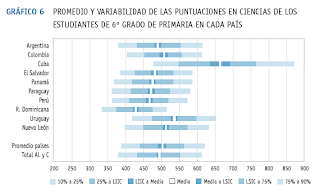
Wednesday I went to the rally "in defense for democracy", a pro-government demonstration on the Plaza de Mayo, including an address by Christina Fernández Kirchner. Some observations:
1. I guess this shouldn't have come as a big shock, still I was surprised by the amount of flags and blue and white, which were virtually the only colors present at the rally. The above picture gives a pretty accurate impression.
2. Christina is not a very good public speaker (or she doesn't have good speech writers). The speech (full text
here) was very much about "me, me, me", while the age of Obama should have taught us that a much more powerful way to engage a big crowd (estimates are a solid 50.000) would be "we". I didn't pick up great enthusiasm in the crowd either.
I think her two strongest points are a law and order argument (you can't just have anyone block routes) and a democracy argument (she repeatedly refered to the leaders of the agricultural organizations as "four men nobody elected, (...) who decide who can use the roads and who cannot"
For me, the worst line was a "false consciousness" argument about the middle class:
esa clase media que muchas veces a partir de prejuicios culturales termina actuando contra sus propios intereses. Los intereses de la clase media son los de los trabajadores, son los de los empresarios comerciantes, son los de los argentinos que tienen sus intereses atados aquí a la tierra, que no pueden girar dólares al exterior, que tienen su casa aquí, sus hijos.
The middle-class support for the farmers has been striking so far (see my earlier post) and does seem a bit odd given their diverging interests, but I think that telling people they are just dumb isn't going to get them back into your camp.
3. Who was there? Most political allies of the Kirchners' were there, although with the notable absences of a couple of provincial governors and the so called "radicalism K", the pro-Kirchner wing of the (supposedly) opposition UCR party.
More interesting for me were the regular attendants. My sense is that most of them were bussed in from the suburbs, where the support for the government is strongest. As a piece of anecdotal evidence - I took the subway after the rally right of Plaza de Mayo towards Palermo and I don't think it was any more crowded than it would commonly be at that time. Página 12
disagrees, claming there was a sizable group of independent middle-class participants.
La Nación claims that there was a rather elaborate choreography in place to keep hostile groups (the truckers' union of CGT boss Moyano and the
piqueteros of the notorious Luis D Elía) apart.
4. The fallout: Generally, her speech was perceived as rather hostile and might have destroyed some of the good-will that the decision to take the export taxes to congress may have created. I think a conciliatory speech would have put the agricultural sector in a much more difficult political position.
5. Press coverage - by and large the usual suspects: La Nación blasted it, Página 12 thought it was great. The picture above was the title page of La Nación, which initially surprised me, because I thought it was a pretty positive image to go along with damning coverage. I fear, however, it's actually quite pernicious. The caption read "
Los Kirchner, al terminar el acto oficialista en la Plaza de Mayo: "Te amo mucho", le dijo él en ese momento". I think this was supposed to send two messages: First, that Christina is not governing alone, but with Nestor as co-President and secondly that she is weak an needs his encouragement.

